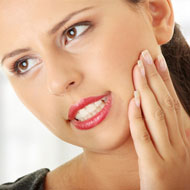- Baby care
- Baby Crying
- Baby Feeding
- Baby Growth
- Baby Language
- Baby Name
- Baby Potty Training
- Baby Safety
- Baby Shower
- Baby Sleep
- Baby Teething
- Bathing a Baby
- Early Pregnancy Signs
- Late Pregnancy
- Miscarriage
- Molar Pregnancy
- Post Pregnancy
- Postpartum Depression
- Pre Pregnancy
- pregnancy care
- Pregnancy Conditions
- Pregnancy Diet
- Pregnancy Due Date
- Pregnancy Exercise
- Pregnancy Heartburn
- Pregnancy Sex
- Pregnancy Sleep
- Pregnancy Stages
- Pregnancy Stretch Marks
- Pregnancy Style and Fashion
- Preschooler
- Second Pregnancy
- Teen Pregnancy
- Toddler Activities
- Toddler Behavior
- Toddler Discipline
- Toddler Food
- Toddler Illness and Injuries
- Toddler Speech
- Twin Pregnancy
Causes of Tooth Loss In Pregnant Women & Tips For Prevention

Along with the wonder and mystical experience of pregnancy, comes the agonizing fact that an expectant mother will go through numerous physical and emotional changes. Dental problems are one such problem. An increase in the levels of progesterone and estrogen during a pregnancy cause an increase in the amount of blood that flows to the gums, putting expectant mothers at greater risk of dental disorders. The loss of teeth is not an uncommon problem during pregnancy. Gingivitis and periodontal disease are dental disorders that expectant mothers are prone to and these disorders can result in tooth loss.
Most women tend to neglect oral health and this is the main reason for aggravated dental concerns during pregnancy. Ignored oral health may also be due to financial constraints or due to an unavailability of time, resulting in problems during pregnancy. On an average, fifty percent of expectant mothers across the globe suffer from gingivitis. Gingivitis is an infection of the gums that causes redness, puffiness and inflammation of the gums. Because the gums are extremely sensitive at this time, even brushing the teeth can cause them to bleed. The primary cause for gingivitis, however, is the bacteria formed by the particles of food that get stuck in between the gums and the teeth. Another common disorder experienced by pregnant women is periodontal disease. Brought on by gingivitis, periodontal disease is an infection of the gums that destroys the fibers and bones which keep the teeth intact. The loss of teeth during pregnancy is usually caused by a combination of these disorders. Periodontal disorder is also known to put mothers at risk of premature deliveries and increases the risk of delivery of a child with a low birth weight. The infection caused by dental disorders is also known to spread through the body and cause miscarriages.
Visiting the dentist before planning a child is recommended, since the procedures and medication required for dental procedures will affect the growth of your child within your womb. Looking after your teeth helps to keep away tartar and plaque which cause deterioration of the gums. In the event that you feel the need to visit a dentist, try and schedule your meeting during the second trimester, after the baby’s vital organs are developed. In case the treatment required to relieve yourself from dental problems is not severe, your dental practitioner is likely to give you treatment during the pregnancy. However, it is always advisable that you solicit the advice of your gynecologist, before undergoing any form of treatment.
- RSS Feeds -
- All posts
- All comments
- Shaken Baby Syndrome Causes Children are as delicate as the petals of a flower and any violent behavior h
- Hair Fall After Pregnancy If your hair is falling out after pregnancy, you need not worry; it is one of t
- Dental Care Guidelines in Pregnancy Dental care is essential for women during pregnancy. Research shows that poor
- Bleeding Gums During Pregnancy Bleeding gums during pregnancy is a common problem faced by many women during